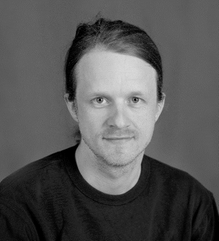
Nyheter
-
Stipendieöverlämnande:AG-Pris 2024
Utdelning av stiftelsen Assar Gabrielssons Fonds Pris för utmärkt avhandling i cancerforskning till ...
-
Stora forskningsbidrag, Anslag 2023:
Stora Forskningsbidrag 2023
Stiftelsen Assar Gabrielssons Fond delar ut två anslag på 600 000 SEK för projekt med högre kvalitet...
-
Stipendieöverlämnande:AG-Pris 2023
Utdelning av stiftelsen Assar Gabrielssons Fonds Pris för utmärkt avhandling i cancerforskning till ...
-
Stora forskningsbidrag, Anslag 2022:
Stora Forskningsbidrag 2022
Stiftelsen Assar Gabrielssons Fond delar ut två anslag på 600 000 SEK för projekt med högre kvalitet...
-
Stipendieöverlämnande:AG-Pris 2022
Utdelning av stiftelsen Assar Gabrielssons Fonds Pris för utmärkt avhandling i cancerforskning till ...
Award 2023

-
Bigger Research Projects 2023
Stiftelsen Assar Gabrielssons Fond annually awards, according to its regulations, "two grants for large projects, preferably one for preclinical cancer research and one for clinical cancer research".
This year, two projects of high quality will receive 600 000 SEK each: Alessandro Camponeschi's and Stefan Kuczera's, both researching at the University of Gothenburg.

Alessandro Camponeschi
Project title: Unlocking the therapeutic potential of targeting CD38 in pediatric Burkitt's Lymphoma
The prevalence of pediatric Burkitt’s lymphoma (BL) and the lack of effective treatment options for a significant portion of patients make it a critical area of research in pediatric oncology. This study will explore the role of CD38, a transmembrane protein highly expressed in BL and other B-cell malignancies, in the pathogenesis of pediatric BL. By assessing the therapeutic potential of targeting CD38, this study has the goal to offer novel treatment options for children suffering from this form of B-cell cancer.
Alessandro Camponeschi is a researcher at the Department of Rheumatology and Inflammation Research (DRIR) at GU. During his doctoral studies in Italy, he had the opportunity to work in multiple labs and investigate B cells in health and various diseases, such as common variable immunodeficiency and rheumatoid arthritis. After receiving his Ph.D., he moved to Sweden and pursued a postdoc position, where he focused on studying human B-cell development and its clinical implications, such as immunodeficiency, autoimmunity, and cancer. Currently, his research primarily focuses on B-Cell Receptor (BCR) biology and the role of BCR signaling in the proliferation and survival of B-cell malignancies.

Stefan Kuczera
Project title: Fast Computation and Reproducibility of Diffusion MRI Biomarkers for Prostate Cancer by Artificial Intelligence
The main object is the development and application of deep neural network methods in order to improve prostate cancer diagnostics with diffusion magnetic resonance imaging (dMRI). The applicant and co-workers have recently developed a framework for robust and reproducible estimation of dMRI model parameters that can serve as advanced biomarkers for prostate cancer grading. However, the approach is not practical for larger patient cohorts due to long computation times. By exploring different types of neural networks, it is expected that deep learning methods can outperform conventional approaches in terms in robustness, image quality and computational performance. The deep learning methods will be applied to patient data collected at Sahlgrenska University Hospital with a dedicated acquisition sequence.
Stefan Kuczera is a researcher at the Department of Radiology, Institute of Clinical Sciences, University of Gothenburg. He received his PhD in magnetic resonance physics from Victoria University of Wellington, New Zealand, in 2015. After a postdoc at Lund university, Stefan moved to Gothenburg in 2018 where he develops new magnetic resonance imaging (MRI) methods with particular focus on diffusion och prostate cancer.



